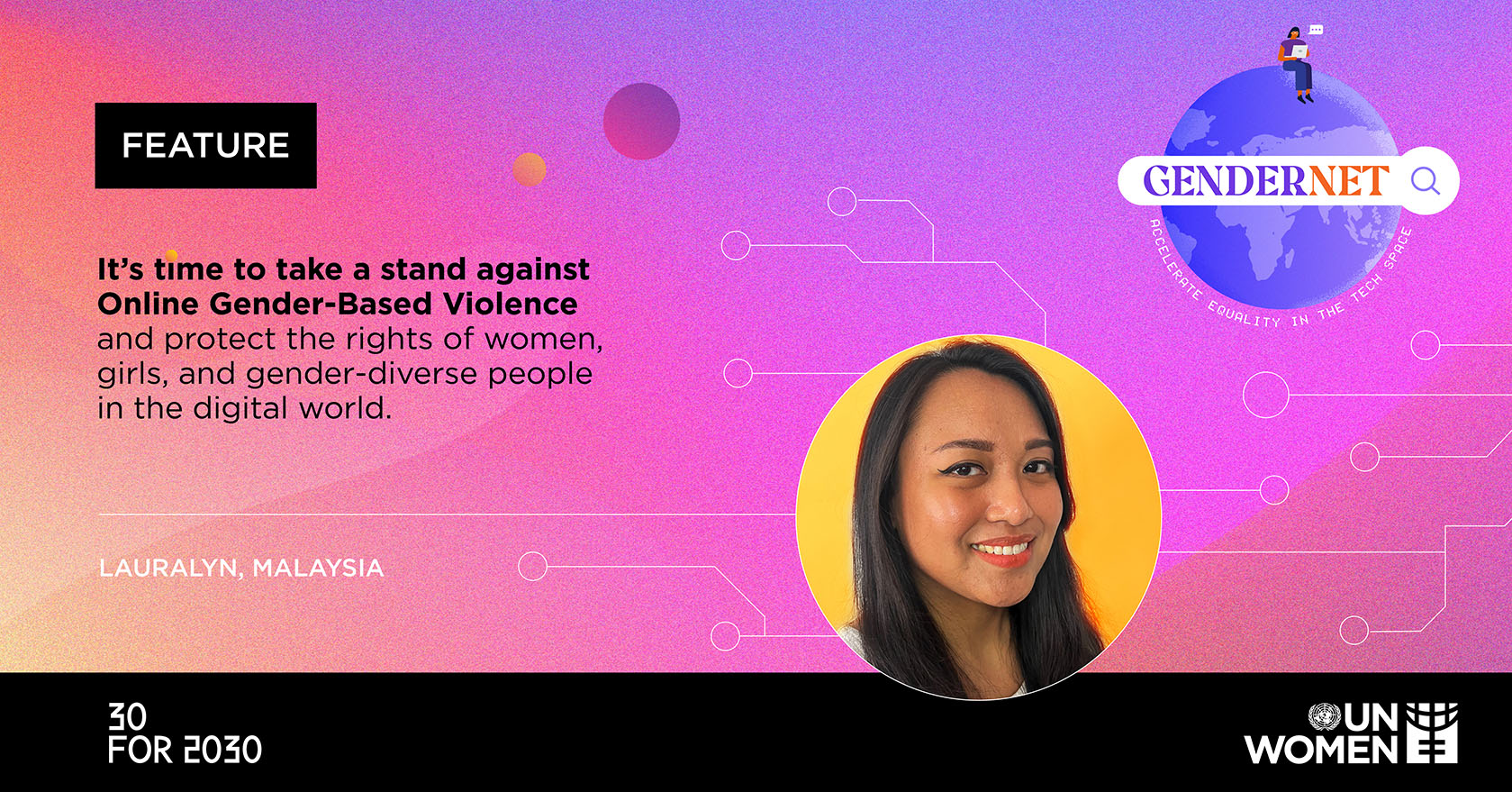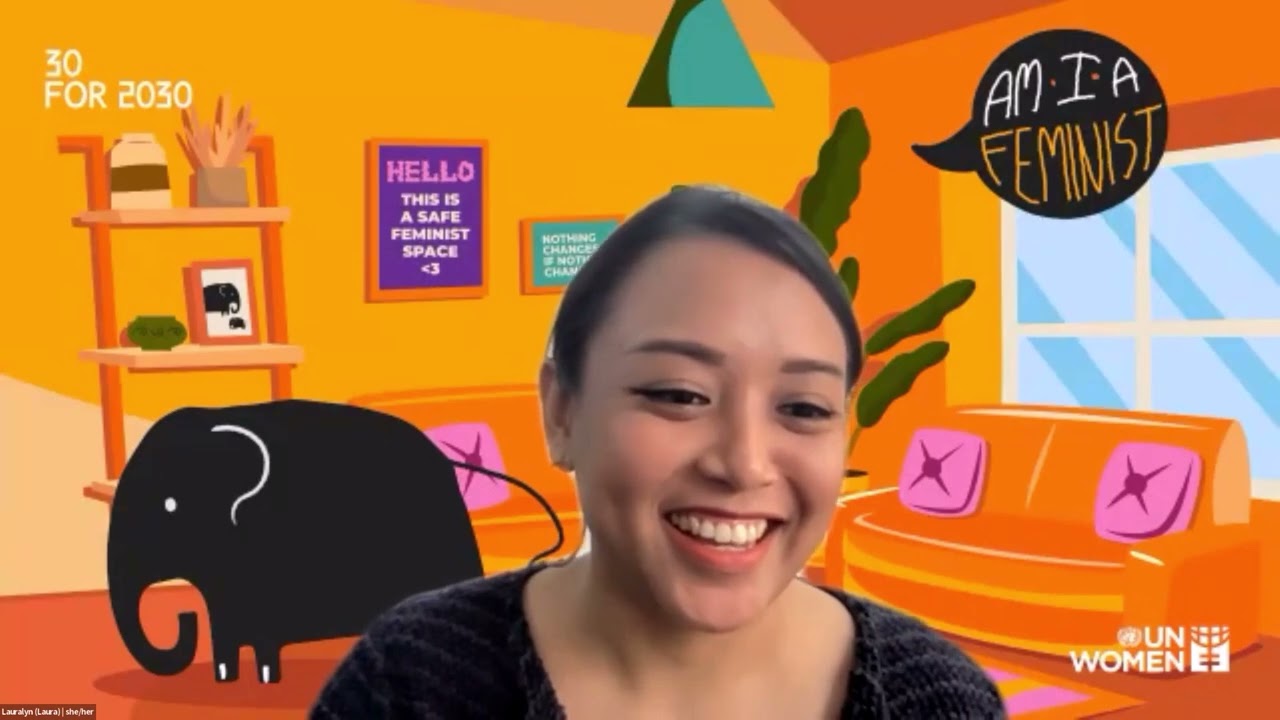At the heart of feminism is the advocacy of rights for women, girls, and gender-diverse people based on gender equality.
Gender inequality and power imbalance exist in societies primarily governed by men (i.e., patriarchy) and in the legacy of colonialism.
"[..] we can live in a world where everyone has equal opportunity to grow and be the best, most authentic version of themselves”
— Lauralyn, 30 for 2030 Network Member.
Feminism is about dismantling patriarchy and redistributing that power so we can live in a world where everyone has an equal opportunity to grow and be the best, most authentic version of themselves: regardless of gender, caste, sex, race, ethnicity, class, sexuality, religion, disability, weight, and physical appearance.
The MRM is making itself increasingly felt in the Asia-Pacific region, including online.
Recently, an individual (or group—we don’t know) hacked our 30 for 2030 Instagram account.
We had only had that account for less than four months and were already targeted maliciously. While our experience didn’t escalate to a level that would traumatize our network, it’s a glimpse of how the internet is abused.
The MRM is growing, and its members are weaponizing the internet to perpetrate online gender-based violence (OGBV). They create a hostile environment online for women, girls, feminists, and feminist activists, making it harder for them to have their voices heard and be taken seriously in discussions around gender equality.
"In 2021, 88 percent or almost 9 in 10 Asian-Pacific women experienced or knew someone that experienced online violence.”
— Lauralyn, 30 for 2030 Network Member.
Groups in the MRM tend to threaten women by making them feel unattractive, judging their sexual history, insulting their intelligence, accusing them of mental illness, and sharing misinformed political opinions.[3] They spread propaganda on a grand scale, insidiously organizing people online and offline.
OGBV is a critical issue that we must address today. In 2021, 88 per cent or almost 9 in 10 Asian-Pacific women experienced or knew someone that experienced online violence.[4] With increased internet connectivity and unreported cases, the number could be higher. Additionally, adolescent girls and those from vulnerable backgrounds are the most affected.[5]
As one of the 9 in 10, I’ve experienced cyber-flashing (i.e., unsolicited "eggplant" pics) and have had to report online sexual harassment. Reporting was traumatizing. I silenced myself online as a coping mechanism – minimized my presence and activity.
Even today, I sometimes feel like I need to self-censor.
We’re not allowed to be our most authentic selves because of the many risks we face – some of which are deadly.
Beyond physical and psychological consequences, it also negatively impacts society and the economy.
How can we undo this hacking? We need to reclaim our space in the growing manosphere and strengthen the definition of feminism that's being degraded, devalued, depreciated, and distorted by the MRM for their agenda of maintaining the imbalance of power through patriarchy.
Unhacking Feminism
/ˈunhak ˈfɛmɪnɪz(ə)m/
The act of reclaiming the definition of feminism, which is being degraded, devalued, depreciated, and distorted by the Men’s Rights Movement through the internet, especially social media, in their agenda to maintain the imbalance of power through patriarchy.
If you want to empower young survivors and advocates, check out 30 for 2030’s informative & actionable OGBV Prevention Toolkit. It even has recommendations for governments, private sector individuals and organizations, tech companies, civil society organizations, law enforcement agencies, and the general public.
Let's unhack feminism and take a stand for the digital rights and safety of women, girls, and gender-diverse people.
[1] The men and women, guys and girls of the ‘manosphere’: A corpus-assisted discourse approach
[2] Some say the Me Too movement has gone too far. The Harvey Weinstein verdict proves that’s false.
[3] Men’s-Rights Activists Are Finding a New Home With the Alt-Right
[4] Measuring the prevalence of online violence against women

